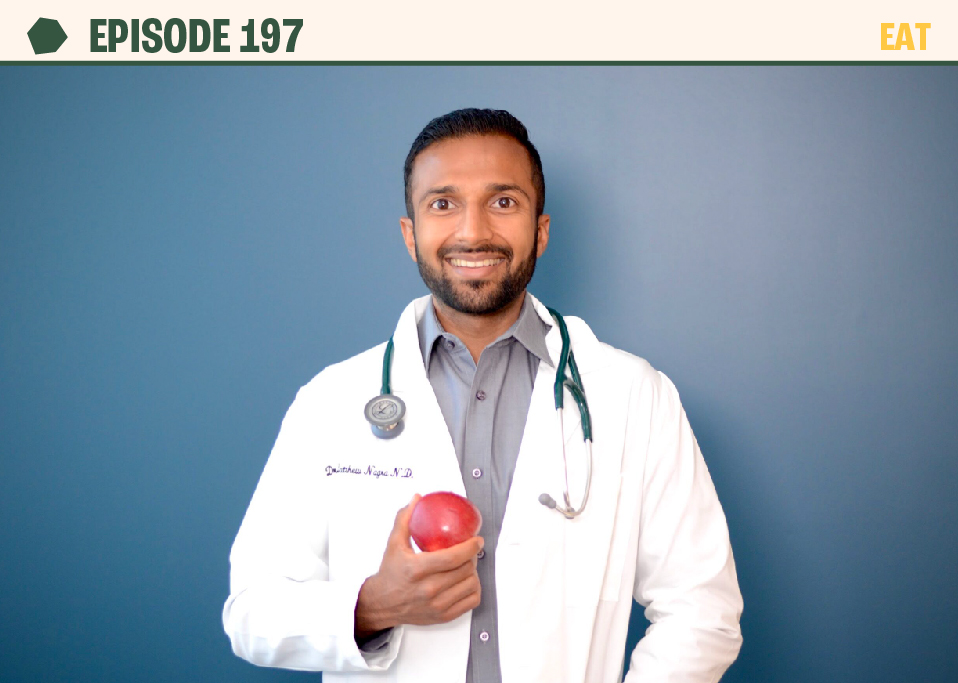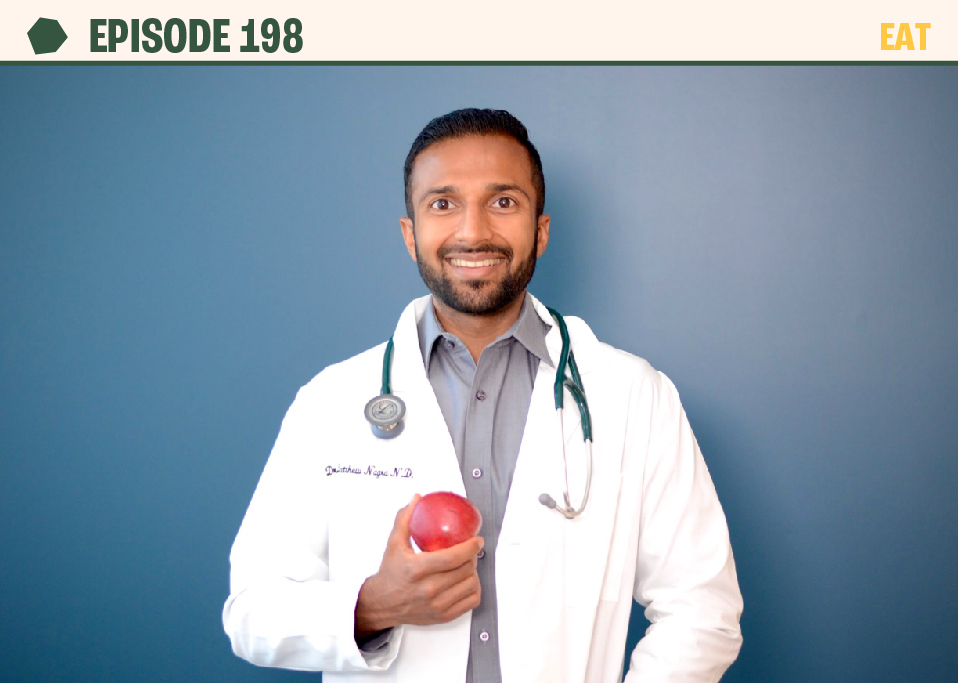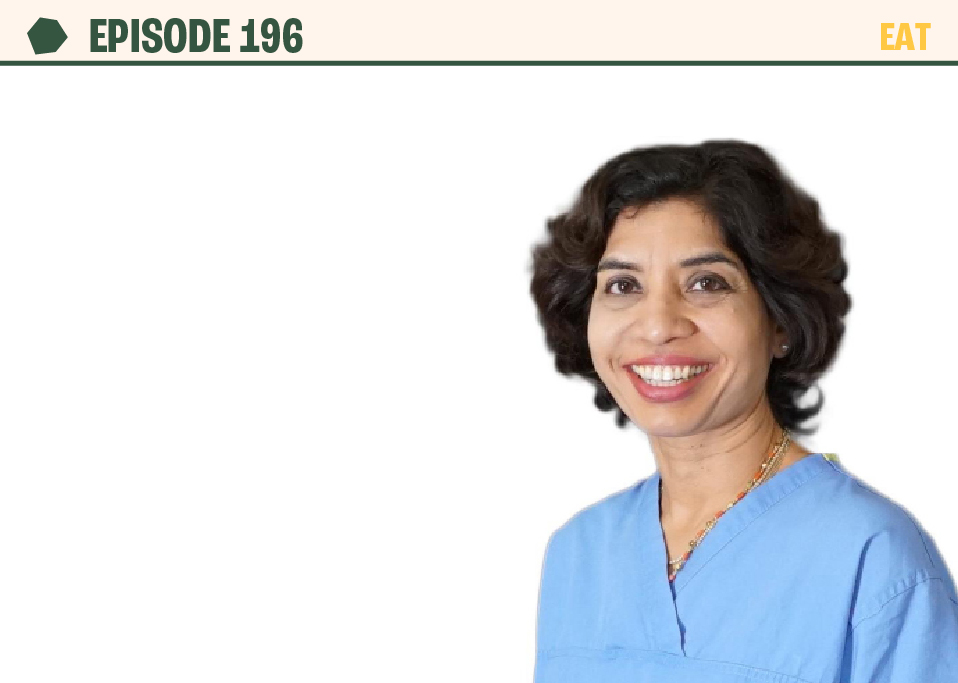“We have to look at foods and how they affect our risk – we can’t just put them into this box of processed versus unprocessed.”
Soy consumption is a hotly contested topic on the internet right now. From claims that soy causes cancer to accounts of men experiencing feminisation, there is an array of misinformation and poorly interpreted studies that slander soy. My philosophy is that we must always approach nutritional claims with a science-first approach, using the evidence we have to develop an informed conclusion with nuance.
“What we need to look at is the quality of the evidence. We have what’s called an evidence hierarchy… there’s a reason for that. It’s not just made up.”
Today, Dr Matthew Nagra returns to the Plant Proof podcast to discuss soy and its effects on human health. Dr Nagra is a Naturopathic Doctor who focuses on bringing the most up-to-date evidence-based nutrition information to his patients. Through this approach, he has developed a rich understanding of the most recent, reliable, and relevant studies, ensuring an understanding of nuance along the way.
“The big picture here to take away is at worst, depending on your situation, there seems to be a neutral impact. At best, there seems to be benefit based on the findings that we have.”
Dr Nagra first appeared on the show in Episode #113, sharing his knowledge of using evidence-based nutrition to help his patients improve their health. He returned on Episode #133 to offer his wisdom on protein, touching on soy among other things – and today, we explore this topic further with a deep dive into soy and human health.
In this episode, you’ll gain a clear understanding of what soy is, with an explanation of phytoestrogens (which are commonly vilified online). We cover what the science says about soy and cancer for both men and women, the processing of soy products, and the way soy interacts with hormones.
Specifically, we discuss:
- What soy is
- Its history and consumption across different demographics
- What phytoestrogens are
- The effects of isoflavone consumption on hormones in men and women
- Soy and prostate cancer risk
- Processing of soy products
- Whether we should be choosing soy milk over dairy milk
- Soy and breast cancer risk
- Potential effects of soy formula on female infants
- Where the health guidelines land with soy
- Soy and menopausal symptoms
- Goitrogen concerns
- Claims about the harms of soy
- Food swaps for health
- And much more.
Dr Nagra’s focus on evidence-based nutrition is reassuring and cohesive. In a world where everyone in online comment sections claims to be a health expert, the voices of qualified medical professionals are more important than ever. It’s critical that we form opinions based on science, not marketing – and I’m grateful to have Dr Nagra on the show today to share what the evidence says about soy. I hope that this conversion helps alleviate some fears around soy, or reinforces the evidence-based understanding you had already.
If you enjoyed hearing from Dr Nagra today, you can look forward to his upcoming debate with Tucker Goodrich on my new platform, The Proof. He will take the agree position on the topic “It is more reasonable to believe that seed oils are beneficial rather than harmful for CHD risk”. My role in this debate is simply to facilitate, without intervention or bias. Make sure to enter your email here to be notified when this platform launches.
To learn more or connect with Dr Matthew Nagra, you can reach him on Instagram, Twitter, Facebook, and his website. You can also listen to his previous episodes, Episode #113 and Episode #133.
The best way to support the show is to use the products and services offered by our sponsors. To check them out, and enjoy great savings, visit theproof.com/friends.
Enjoy, friends.
Simon
Additional resources
- Listen to Dr Nagra’s previous episodes, Episode #113 on eating for health and Episode #133 on protein
- Dr Nagra references the Canadian Food Guidelines, recommended by the Canadian Cancer Society
- He also mentions the American Cancer Society Guidelines
- Origin of the Soybean and Germplasm Introduction and Development in North America
- Soy Story: A Short History of Glycine max in Canada
- Neither soy nor isoflavone intake affects male reproductive hormones: An expanded and updated meta-analysis of clinical studies PMID: 33383165
- USDA Database for the Isoflavone – Content of Selected Foods
- Soy Consumption and the Risk of Prostate Cancer: An Updated Systematic Review and Meta-Analysis PMID: 29300347
- Effects of soy protein and isoflavones on circulating hormone concentrations in pre- and post-menopausal women: a systematic review and meta-analysis PMID: 19299447
- Isoflavone consumption and risk of breast cancer: a dose-response meta-analysis of observational studies PMID: 23353619
- Soy intake and breast cancer risk: a prospective study of 300,000 Chinese women and a dose-response meta-analysis PMID: 31754945
- Tofu intake is inversely associated with risk of breast cancer: A meta-analysis of observational studies PMID: 31910211
- Cancer survivors
- Post-diagnosis soy food intake and breast cancer survival: a meta-analysis of cohort studies PMID: 23725149
- Soy and isoflavones consumption and breast cancer survival and recurrence: a systematic review and meta-analysis PMID: 30382332
- Soy and Isoflavone Consumption and Multiple Health Outcomes: Umbrella Review of Systematic Reviews and Meta-Analyses of Observational Studies and Randomized Trials in Humans PMID: 31584249
- Eating well after breast cancer
- American Cancer Society guideline for diet and physical activity for cancer prevention PMID: 32515498
- Extracted or synthesized soybean isoflavones reduce menopausal hot flash frequency and severity: systematic review and meta-analysis of randomized controlled trials PMID: 22433977
- Quantification of genistein and genistin in soybeans and soybean products PMID: 8655094
- Quantitative efficacy of soy isoflavones on menopausal hot flashes PMID: 25316502
- Systematic Review and Meta-analysis on the Effect of Soy on Thyroid Function PMID: 30850697
More about Dr Nagra
Dr. Matthew Nagra is a Naturopathic Doctor devoted to bringing the most up-to-date evidence-based nutrition information to his patients at his clinic in Vancouver. In 2018 he graduated from the Boucher Institute of Naturopathic Medicine after completing his Bachelor of Science in Microbiology at the University of Victoria. He’s certified in plant-based nutrition through eCornell and the T Colin Campbell’s Center for Nutrition Studies. Dr. Nagra is also a public speaker and is known for his content across multiple social media platforms, where he often tackles misinformation around diet and nutrition, and deep dives into the latest nutrition research.








